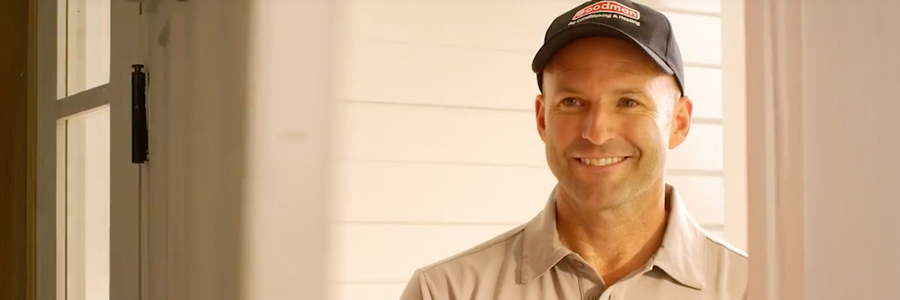The Urgent AC Repair Service Call

Have you ever walked through the door to your home and realized it’s very hot and humid on the inside? It may be time to make that dreaded HVAC urgent service call to your local professional or licensed dealer.
Before making the urgent service call, a homeowner needs to do some simple detective work. It’s helpful if the technician understands your air conditioning issue when they arrive at your home. The three most common calls related to air conditioners are:1
- AC unit turns on but isn’t cooling properly
- AC unit isn’t turning on
- Air flow velocity is reduced
Common Air Conditioning Problems
Maintaining a comfortable and consistent temperature in your home is a delicate balancing act between the air conditioning equipment, air flow, and mechanics. If one or more components are not functioning as designed, the entire system may be affected. In order to understand the air conditioning language used by your technician, it may be helpful to learn "How an Central AC System Works", and a few key parts of your cooling system.
The Department of Energy (DOE)2 highlights a few of the most common air conditioning problems that your HVAC technician may discover. If cool air isn’t flowing or you AC won’t turn on, your technician may inspect one of more of the following:
- Refrigerant: Low or leaking refrigerant will minimize the cooling capacity or your air conditioner. If there is an issue with the refrigerant, your technician may attempt to identify and repair the leak and recharge the system
- Thermostat or Control System: Dead batteries in a thermostat or control system may prevent your unit from turning on. If the unit turns on but isn’t cooling properly, your technician may perform a test to ensure it is set properly and that it is reading the correct temperatures.
- Electric and Electronic Controls: If the unit is not operating, the compressor, fan controls or capacitor could be worn out or electric connections may have been affected by the system’s consistent starting and stopping, and on-demand operation.
- Condensate Drainage: If the unit isn’t cooling properly, the technician may check condensate drains to be sure they are not clogged.
- Air Filters: Clogged air filters can restrict airflow and decrease your air conditioner’s ability to remove humidity from the indoor air effectively.
- Ductwork: Leaking, constricted or clogged ductwork can interfere or even cut off conditioned air from getting to your indoor living spaces.
Your HVAC technician may suggest replacing your air conditioner rather than repairing it if they discover a costly issue on an aging and inefficient unit. While there are a lot of variables in determining whether an AC should be repaired or replaced, your contractor can provide the best guidance because they understand the details associated with your particular system.
Before the HVAC Technician Arrives
If possible, you should locate and write down the manufacturer name and model number of the equipment from your initial bill of sale so it is immediately available to the technician upon their arrival at your home. If this information is not available from your paperwork, a homeowner should not attempt to open any equipment in order to access this information. If your air conditioning system is covered by a limited warranty, be certain to tell your HVAC technician.
Follow Up
Routine maintenance can be a big part of maximizing the longevity and efficiency of your air conditioner. It is as important as taking your car to a mechanic for oil changes! If an extended service agreement is not already in place, technicians may often offer to set up a maintenance plan wherein the customer agrees to pay a set fee for standardized scheduled system maintenance. Routine maintenance may extend the life of your HVAC equipment and possibly prevent minor issues from turning into expensive major problems over time.3

1, 2 Energy Saver 101: Home Cooling. (n.d.). Retrieved from Energy.gov: https://energy.gov/articles/energy-saver-101-infographic-home-cooling
3 Maintaining your Air Conditioner. (n.d.). Retrieved from Energy.gov: http://energy.gov/energysaver/maintaining-your-air-conditioner